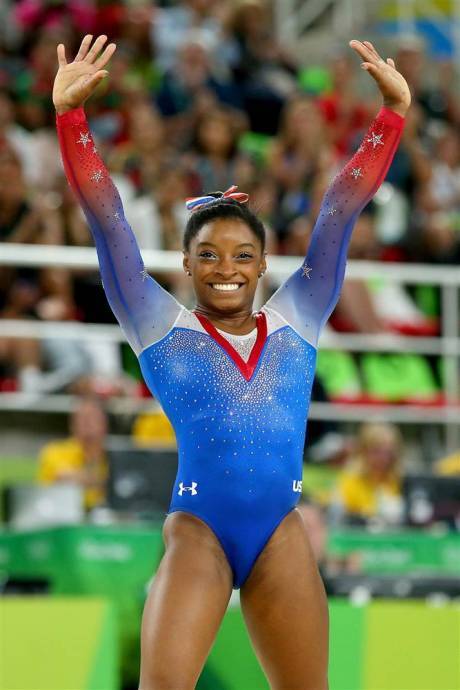County mental health director credits Olympic gymnast for having courage to recognize wellness issues

That’s the opinion of Lynda Battaglia, Genesee County’s director of mental health and community services, who shared her thoughts with The Batavian this morning.
“I think it took a lot more strength for her to recognize that she really wasn’t in the right ‘head space’ and that it was in her best interest to withdraw. I think she is leading by example to say that’s it’s ok to not be ok,” Battaglia said.
Biles, 24, pulled out of the women’s gymnastics team final on Tuesday (Team USA ultimately captured the silver medal) and has decided not to defend her individual all-around gold medal, which is set for Thursday.
A statement from USA Gymnastics indicated Biles has withdrawn to focus on her mental health, and has not decided on whether to compete in next week’s event finals.
Appearing on the Today show, Biles said: “Physically, I feel good, I'm in shape. Emotionally, that kind of varies on the time and moment. Coming to the Olympics and being the head star isn't an easy feat, so we're just trying to take it one day at a time and we'll see.”
Previously, she revealed that she has been in therapy and takes medication to deal with anxiety issues.
'Weight of the World'
Battaglia said that Biles’ statement that she has “the weight of the world on her shoulders” speaks volumes.
“I guess my question is why should any person, maybe beside the president, feel that kind of pressure?” Battaglia asked. “We’re human beings. We are not designed to be perfect (but) Olympians and elite athletes strive and practice excessively to achieve that perfection.”
Intense pressure comes in many forms and can hit people in all walks of life, she said.
“Even people academically. That kind of stress is not just in the athletic world but also in academics – students trying to get scholarships or pushing themselves to achieve greatness,” she said. “I believe in hard work and achieving greatness, but not at the cost of one’s mental health.”
Christian Bartz, a licensed clinical social worker with his own practice, Batavia Counseling & Wellness, mentioned that Biles is a trauma survivor, having acknowledged that she was abused by the gymnastics' team doctor.
Trauma Compounds the Problem
"In Simone’s case, she is a victim of abuse, and we know this because she was brave enough to disclose it," he said. "If we’re going to talk in particular about Simone, if there’s something that you and I may be afraid of, like if I’m afraid of heights, that fear trigger for Simone is going to touch on trauma. This is a trauma survivor."
Bartz said the general public doesn’t truly understand the adverse impact of trauma.
"We don’t need PTSD (post traumatic stress disorder) to still have trauma in our life," he said. "And where there’s trauma, there’s a rewiring of your brain, so fear hits you differently; pressure hits you differently. So, with her trauma being connected to their team doctor … directly connected to the sport in which she competes in, it makes it even more difficult for her."
Battaglia, an adjunct professor of Social Work at the University of Buffalo, said she hopes those watching the Olympics can empathize with the athletes who have dedicated their lives to their craft.
It's Not Fair to Pass Judgment
“Olympians are trying to be the best in the world, and the entire world is watching them. I think it’s easy for people to watch it on TV and to be disappointed, if you will, if the United States comes in second place or somebody withdraws or doesn’t perform to that perfection level,” she offered. " I think it’s very easy for people to judge and be disappointed, but is that how they really should react? They’re not walking in their shoes.”
Battaglia also noted that the COVID-19 pandemic and the ensuing delay in having the Olympic Games have added to the uncertainty and insecurity.
“In the case of the Olympics, it was delayed a year and now you’ve got another year of training,” she said. “And now you’re going to a country with no spectators – you might not have that family support that you’re hoping to have. Not only is the world watching you, but now you’re in a country where there still is a significant risk of COVID.”
The number of people seeking mental health treatment has increased dramatically since COVID, she said.
“We, people in the field, were expecting that. We’re going to see a ripple effect and it’s going to linger for quite some time.”
File photo of Simone Biles, courtesy of NBC News.
